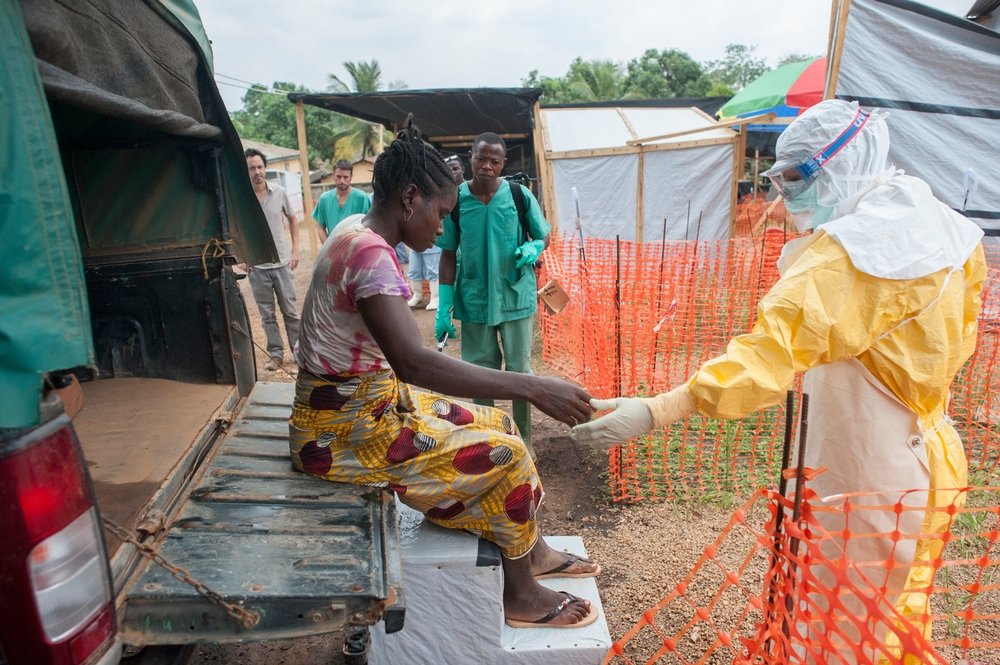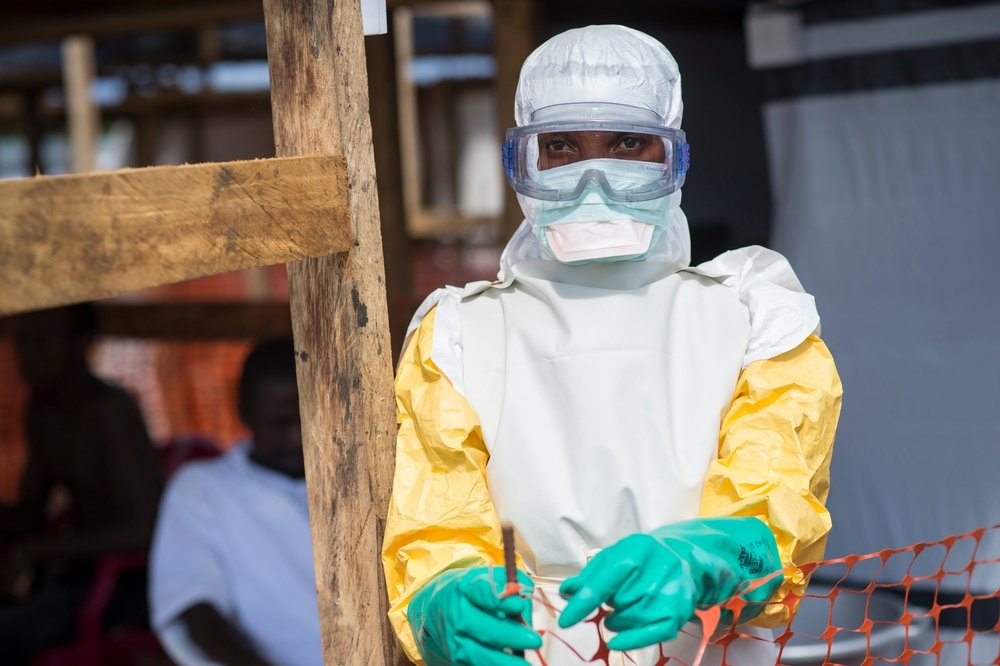
Guinea (OCB)
Guinea was declared free of Ebola the 28th of December 2015. MSF is now running an Ebola clinic for survivors in Conakry. In February, there were 126 psychological consultations and 181 medical consultations at the clinic. In addition to this, the MSF team also carries out sensitization activities at the clinic and in the community.
On 17 March, the Guinean government announced two new confirmed deaths and three suspected cases, in the first re-emergence of the virus in the country since the outbreak was declared over in December 2015. MSF is not involved in case management but is ready to provide support if needed.
Liberia (OCP)
The last patient was tested negative and discharged on the 4th of December. Liberia was then declared Ebola free on 14th of January. According to WHO, the last cluster of cases is now understood to have been a result of the re-emergence of Ebola virus that had persisted in a previously infected person.
The Liberian national health system, which was already among the weakest in the world, has been decimated by the outbreak – close to 200 Liberian healthcare workers having died from Ebola according to official statistics, which represents 8% of all health workers in the country. MSF is now focusing activities on helping to restore offer of healthcare, notably through a MSF-managed paediatric hospital in Monrovia.
Before the epidemic, there were 220 inpatient pediatric beds in Monrovia, but in April 2015, when MSF opened its paediatric hospital, all paediatric wards had closed. At the end of 2015, 122 inpatient beds were available. But this is clearly not enough for a city of 1,4 million inhabitants, with an estimated 17% of them being children under 5 years-old.
Monrovia – Paediatric hospital and survivors clinic
In Monrovia, MSF is running a 91-bed pediatric hospital, the Barnesville Junction Hospital (BJH), including a 22-beds neonatal intensive care unit, aiming to contribute to restoring the provision of emergency and secondary healthcare for children in the aftermath of the Ebola outbreak. In 2015, more than 3,400 consultations took place in the emergency room of the hospital, and over 3 000 children were admitted in the inpatient ward. MSF also runs a clinic for Ebola survivors in the premises of the hospital.
Former patients have to face stigma and discrimination while accessing care, as well as social and economic problems (loss of work, loss of housing, etc.). MSF provides general outpatient consultations, and addresses mental health needs to a group of more than 500 identified former Ebola patients, which are estimated to be a third of all survivors in Montserrado County. Teams have been providing consultations also to patients who are not identified as survivors, because of the lack of certificates of cure / discharge from ETCs. Compared to identified survivors, their access to medical and social assistance has therefore been even poorer. Common complaints are joint pains and ophthalmic issues.
For the latter, MSF provides care in collaboration with a Liberian eye clinic. About 400 survivors have been seen since April 2015, 168 are actively followed. 32 patients are under psychiatric treatment and 35 patients are currently followed for eye problems. MSF also offers supportive mental health services to frontline workers during the outbreak (ETU staff, burial teams, etc.), as well as members of the families of survivors.
Sierra Leone (OCA, OCBA, OCB)
The country was declared free of EVD transmission on 7 November but a new death was confirmed on 14 January, followed by an additional case on 20 January. Sierra Leone was once again declared free of EVD transmission on 17 March.
MSF played a key leading role in treating people who suffered from Ebola and continue to provide medical and psychosocial services to some of the country’s 4,000 Ebola survivors in Freetown and Tonkolili district. New projects on maternal and child health opened in different towns of the country, as the already fragile health system has been further weakened by the burden of the Ebola epidemic. MSF is also maintaining an emergency response capacity through a small team.

Freetown – Survivor clinic (OCB)
The survivor clinic in Freetown has been running since February 2015, providing primary healthcare and mental health support, with currently around 140 consultations per month. MSF also runs community sensitisation and stigma reduction activities.
Magburaka (OCA) – Survivor clinic
By the end of February 2016, the MSF survivor care in Tonkolili has been integrated into the MoH primary healthcare system. We are still following a small number of survivors with mental health support, medical care and referral, but the majority of patients have been discharged from our program. While supporting survivors, we saw a reduction in medical complaints and improvement of the mental health status.
Tonkolili District (OCA) – Reproductive and Child Health
The project continues to support paediatrics and maternity in Magburaka hospital. 10 days after MSF started supporting the hospital in January, a new Ebola case was identified in Magburaka. The team managed to continue medical care in the hospital throughout this new outbreak, which was rapidly contained. MSF is also supporting the screening and isolation facility at the hospital. In February, we admitted 152 children to the pediatric ward and 83 women to maternity.
Koinadugu District (OCBA)– Maternal and Child Health
In Kabala hospital, in Koinadugu district, MSF will open a new project with the aim to increase access to free maternal, neonatal and paediatric care while ensuring health care to Ebola survivors in the district and effective response to outbreaks and emergencies in the area.
Read MSF's Ebola Accountability Report
Read MSF-OCB Supported Research on Ebola